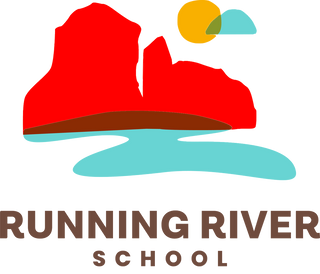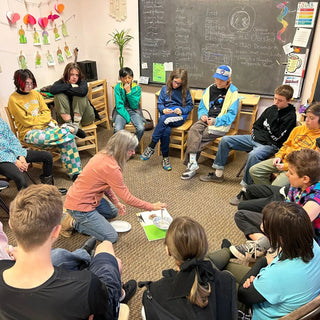Curriculum Overview
- Theme: The Age of Explorers
- Beginning algebra, geometry, math skills class
- Creative and expository writing, research, poetry and prose, English skills class
- Physics, inorganic chemistry, mechanics, astronomy, physiology, anatomy
- Renaissance history, the Reformation, the Age of Discovery, European and Latin American geography
- Perspective drawing, painting, portraiture, sculpture
- Spanish
- Choir, musical instrument (as available)
- Class Play
- Physical Education/Movement/Games
Life Skills
- Assume responsibility for self and work
- Maintain an organized assignment planner and complete homework assignments in timely fashion
- Work independently and quietly with focus on a task for up to 45 minutes
- Work collaboratively and do fair share of the task
- Work independently and collaboratively with minimum adult intervention
- Work neatly with desire to do best work
- Respect teachers, classmates, property, and materials
- Keep personal and school belongings well organized
- Have appropriate materials needed for class
- Be prepared and ready for class on time
- Maintain a positive attitude
- Work constructively with feedback from teachers and classmates
- Support classmates and the group
- Practice social inclusion and be included in social activities
- Use group process and discussion to work through social issues and class projects
- Participate in class discussion
- Participate in choral recitation and singing
Detailed Curriculum
Seventh Grade marks the birth of the intellect with the need to experiment and explore the world. The thirteen to fourteen year old needs to question authority, pushing the boundaries of what is known or allowed. Powers of reasoning are being exercised and judgments about the world are formed. The child is developing the capacity to stand back from its own feelings and with this distance can come perspective, the beginnings of objectivity.
The study of the Renaissance provides a backdrop for much of the seventh grade year, providing lessons in history, science, mathematics, geography, literature and art. The Renaissance artist wished to be recognized for his own work, the scientist challenged old truths with newly developed tools for measuring the world, the religious rebel rejected the dictates of authority and wished to know God directly. Likewise, the adolescent is driven by these forces.
Meeting the adolescent's need for critical judgement, we are more exacting, focusing on measurement in math, science and art. We are hands on whenever possible, grounding concepts in the real world. Independent projects in the Renaissance and Age of Exploration are a means for the student to go deeper into a subject of interest. Language exercise and drama explore the realm of human feeling.
Language Arts
- Composition
- Spelling
- Reading
- Grammar
- Poetry
- Speech
- Drama
- Creative Writing
Mathematics
- Algebra
- Geometry
- Graphs
- Positive & Negative Numbers
- Formulas
Science
- Human Physiology & Nutrition
- Physics (continued)
- Mechanics
- Current Electricity
- Chemistry: Inorganic
Social Studies
- American, French, and Industrial Revolutions
- Geography of Africa and Asia
World Language
- Spanish
Fine Art
- Composition and proportion
- Pastels
- Clay modeling
Music
- Choir
- Violin (as available)
- Other instruments (as available)
Physical Education
- Movement
- Team Games
- Cooperative Games
- Hiking
- Nature-Based Field Trips
- 'Rites of Passage' Outdoor Activities

